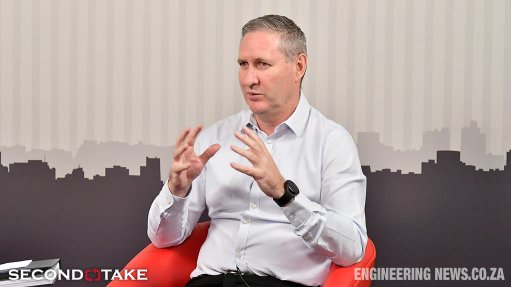Skilled trades still most difficult positions to fill – survey
Workforce expert Manpower Group’s eleventh yearly Talent Shortage Survey shows some interesting results for 2016 over the 2015 results, with skilled trade workers remaining in the top three most difficult positions for companies to fill for the fifth consecutive year, and engineers dropping from the top three to the fourth most hard to fill post.
The survey is conducted yearly, using a sample of 750 businesses in South Africa that form part of 42 300 employers surveyed globally.
The results show that 34% of local employers are having difficulty filling jobs. This is up 3% from the results of the 2015 survey, and a staggering 26% when compared with the survey’s 2014 results.
Employers worldwide are facing the most acute talent shortage since the recession. Of the employers surveyed globally, 40% are experiencing difficulties filling roles – the highest percentage since 2007.
As skills needs change rapidly, employers are looking inside their organisations for solutions, with more than half choosing to develop and train their own people. This represents a significant jump from Manpower Group’s 2015 survey, when just 20% of those surveyed prioritised training and development to fill roles or find new skills.
In the information technology (IT) sector, businesses are reporting the biggest talent shortage in a number of years. IT roles jumped from ninth to second place in the survey; this is the first time the sector has entered the top five hardest roles to fill.
Globally, sales representatives, engineers and technicians all slipped one ranking in the survey, while office support staff dropped two places to tenth.
Production and machine operators also became harder roles to fill. They moved from tenth to ninth in the 2016 ranking year-on-year.
“This year’s Talent Shortage Survey presents interesting results for South Africa and for the global employment landscape. More than anything, the results highlight not only the increased need for skilled individuals but also the number of employers who are focusing on training and development in order to fill open positions, which has increased globally,” says Manpower South Africa MD Lyndy van den Barselaar.
She adds that, as the talent shortage escalates, employability now depends not only on what you know but also on your ability to learn, apply and adapt to the constantly evolving business landscape.
While 72% of local employers said they were experiencing similar difficulties filling positions compared with those surveyed last year, 7% said they were experiencing increased difficulty and 17% said they were experiencing less difficulty.
When asked why they are having difficulties filling jobs, 27% of local employers cited a lack of experience, 26% cited lack of hard skills, 14% said that candidates were looking for more pay than what was being offered, 9% cited a lack of available applicants and 8% cited issues specific to their organisation.
When asked what strategies they were pursuing to overcome the difficulties created by the skills shortage, 86% of local employers said they were training and developing existing employees to fill open positions.
In addition, 60% of employers said they were looking to recruit outside of their talent pool, 54% said they were exploring alternative sourcing strategies, 44% said they were paying higher salary packages to recruits and 41% said they were providing additional perks or benefits for recruits.
“In previous years, the survey found that businesses were having to find new and innovative ways to face the challenges caused by the skills deficit in order to minimise the negative effects on their businesses,” notes Van den Barselaar.
She adds that, while this is still true, job seekers and current employees are also taking it upon themselves to remain upskilled and up to date with the latest technologies and advancements in the modern business environment.
“We are excited to see that the number of employers investing in and focusing on training and development has increased significantly at a global level. Should this trend continue, it will inevitably have a positive effect on the skills deficit.”
Comments
Press Office
Announcements
What's On
Subscribe to improve your user experience...
Option 1 (equivalent of R125 a month):
Receive a weekly copy of Creamer Media's Engineering News & Mining Weekly magazine
(print copy for those in South Africa and e-magazine for those outside of South Africa)
Receive daily email newsletters
Access to full search results
Access archive of magazine back copies
Access to Projects in Progress
Access to ONE Research Report of your choice in PDF format
Option 2 (equivalent of R375 a month):
All benefits from Option 1
PLUS
Access to Creamer Media's Research Channel Africa for ALL Research Reports, in PDF format, on various industrial and mining sectors
including Electricity; Water; Energy Transition; Hydrogen; Roads, Rail and Ports; Coal; Gold; Platinum; Battery Metals; etc.
Already a subscriber?
Forgotten your password?
Receive weekly copy of Creamer Media's Engineering News & Mining Weekly magazine (print copy for those in South Africa and e-magazine for those outside of South Africa)
➕
Recieve daily email newsletters
➕
Access to full search results
➕
Access archive of magazine back copies
➕
Access to Projects in Progress
➕
Access to ONE Research Report of your choice in PDF format
RESEARCH CHANNEL AFRICA
R4500 (equivalent of R375 a month)
SUBSCRIBEAll benefits from Option 1
➕
Access to Creamer Media's Research Channel Africa for ALL Research Reports on various industrial and mining sectors, in PDF format, including on:
Electricity
➕
Water
➕
Energy Transition
➕
Hydrogen
➕
Roads, Rail and Ports
➕
Coal
➕
Gold
➕
Platinum
➕
Battery Metals
➕
etc.
Receive all benefits from Option 1 or Option 2 delivered to numerous people at your company
➕
Multiple User names and Passwords for simultaneous log-ins
➕
Intranet integration access to all in your organisation
















